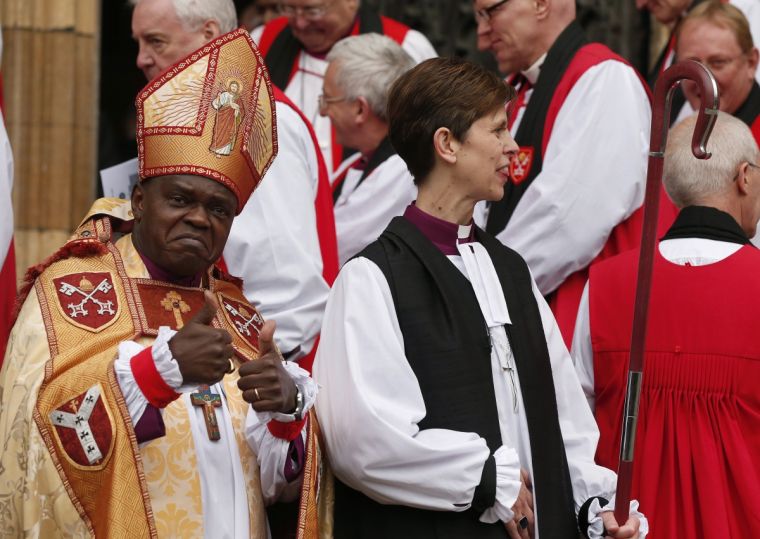Church pledges to 'engage' with Google after investments controversy

The Church of England has admitted it needs to do more to engage with Google after controversy over its holding in Google parent company Alphabet.
The Church has been critical of companies that have avoided paying tax.
Earlier this year, Google reached a £130 million settlement with the UK government on back taxes in deal described by chancellor George Osborne as a victory and by the Public Accounts Committee as disproportionately small.
A spokesman for the Church Commissioners, who manage the Church's £7 billion assets, told Christian Today: "The Commissioners engage with companies on a number of issues proactively and have conducted engagement with a number of UK companies on corporate tax as part of an investor project to encourage good corporate practice.
"We recognise the need for much more engagement beyond those interventions we have made to date.
"In terms of responsible investment, we have made good progress on engaging with policy issues - not least on climate change - and have been largely UK focussed."
The controversy came amid strong results overall for the Church Commissioners' who achieved a total return on their investments in 2015 of 8.2 per cent, exceeding their long-term target by two per cent. However, they also warned of more difficult times ahead.
First Church Estates Commissioner, Sir Andreas Whittam Smith, said: "The Commissioners' fund has grown by an annual average of 9.7 per cdent over the past thirty years compared with an annual inflation rate during the same period of 3.4 per cent. Unfortunately it may be harder in the future to achieve such a satisfactory performance. My message to the wider Church is, don't count on it. The nervousness of investors is explained by the feeling that governments have lost the power to reverse any slowdown in economic activity. In earlier time they would reduce interest rates, but now that rates hover around zero, that remedy is unavailable."
Church of England is also coming under scrutiny because of the pay package awared to its head of investments. The an annual report this week showed investments director Tom Joy earned a salary of £255,000 in 2015 and also received a £208,000 bonus bringing his total package to £463,000.
The Archbishop of Canterbury, who gave up a six-figure salary in industry to train for the priesthood, has said in the past that excess executive pay was "outrageous and even obscene".
A spokesman for the Church Commissioners told Christian Today said: "We judge ourselves by the same measures we apply to others. The remuneration paid falls squarely within the policies applied by the Commissioners to companies in which we invest."
He said performance payments are calculated over the long term to reflect the Commissioners' view that investment should be a long-term issue: "The performance of the Commissioners' investments has been very good and those responsible for securing those returns should be rewarded appropriately. That money goes to fund clergy pension payments and mission funding for the Church. If we want to spend more money on the ministry and mission of the Church, we need to have good returns on investments."











